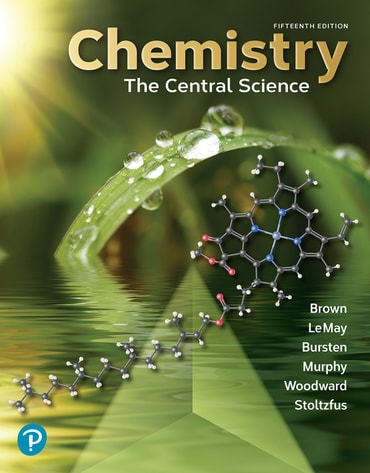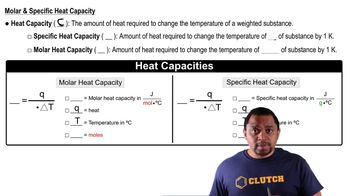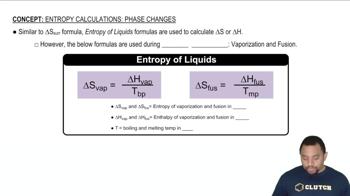Textbook Question
Ethyl chloride (C2H5Cl) boils at 12 °C. When liquid C2H5Cl under pressure is sprayed on a room-temperature (25 °C) surface in air, the surface is cooled considerably. (a) What does this observation tell us about the specific heat of C2H5Cl(g) as compared with that of C2H5Cl(l)?




